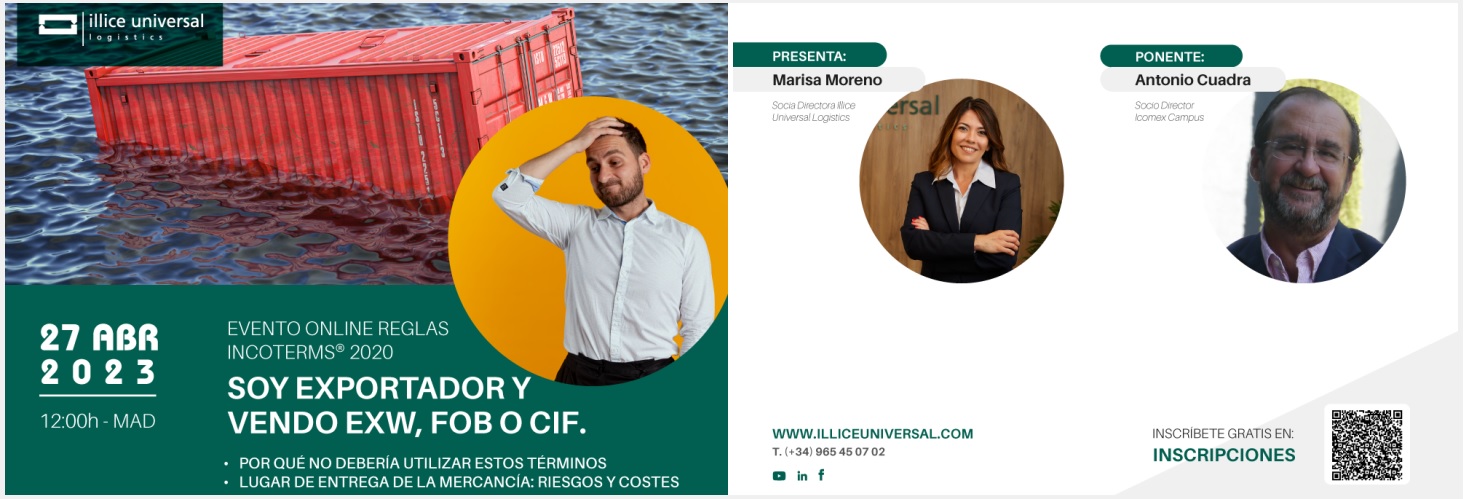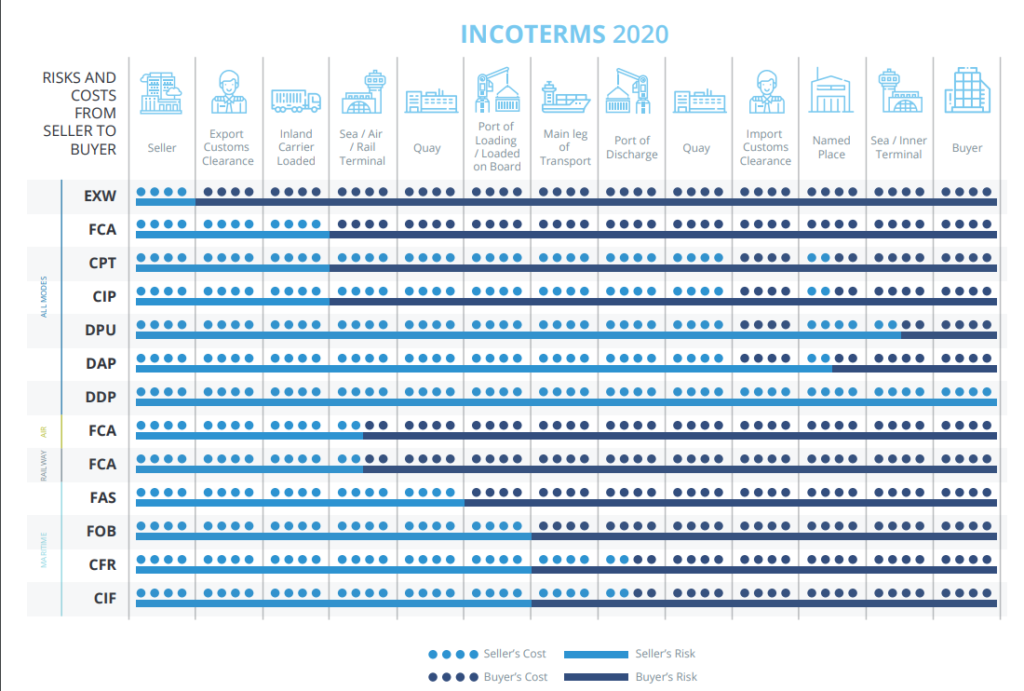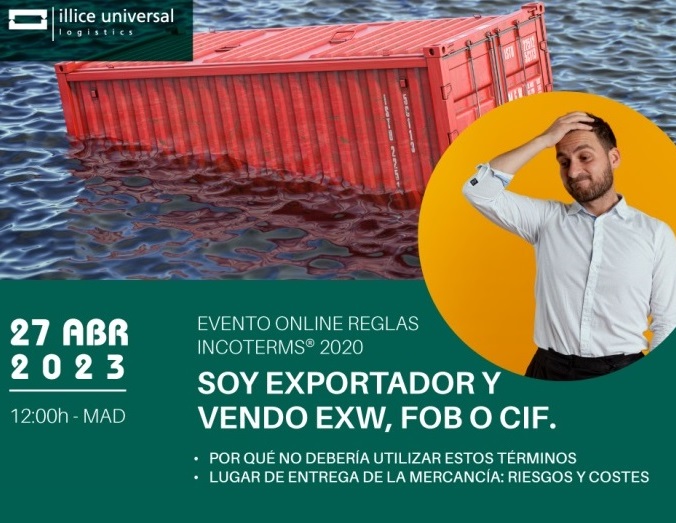The logistics industry has a set of unique terminology that facilitates more effective communication throughout the supply chain. The use of these terms help to save a lot of time. In the logistics industry, Incoterms or International Commercial Terms have globally recognized rules that ease the buying and selling process. It does so by providing a guideline to both parties for fulfilling a contract for the movement of goods. The ICC or the International Chamber of Commerce put these rules into effect in January 2020.
However, did you know that 40% of Incoterms Rules 2020 in shipping container cargo are wrongly used? Did you know why you shouldn’t use the sentence: ‘I am an exporter and I am selling EXW, FOB o CIF?’ Illice Universal Logistics, a Coop member in Valencia, Spain, is organizing an online seminar on Incoterms rules. On this occasion, they will count on one of the experts in this subject- Antonio Cuadra, Director of ICOMEX. “We understand that the Incoterms rules are a complex topic which all freight forwarders need to grasp to ease their operations. The main objective of our event is to present a new perspective on the Incoterms 2020 Rules which is different from the information that is usually offered today.”, states Marisa Moreno, the Managing Director of Illice Universal Logistics.
During the event, the most common mistakes made when applying the Incoterms rules will be analyzed. The event will also focus on the risks forwarders face when using these rules incorrectly. Here, experts will explore the best practices to ensure that Incoterms Rules are applied in international trade more efficiently, since “only by knowing the correct operation of the logistics chain, freight forwarders and other logistics agents will be able to avoid unnecessary risks.”

The event will be held on April 27 at 12:00 pm and participation is free. The Cooperative encourages its members to participate in this event by clicking on this registration link.
The importance of Incoterms in the logistics industry
The Incoterms rules were first laid down back in 1936 by ICC. Its main aim was to create a set of internationally accepted rules and definitions with regards to the delivery of goods among international trading partners. Since then, these rules have been periodically amended. The Incoterms 2020 comes with detailed notes and graphs illustrating the liabilities of exporters and importers all the Incoterms rules.
Incoterms or International Commercial Terms is a phrase that the ICC has trademarked with the intent to facilitate communication in this sector. Its other objective is to minimize confusion in the field of international trade. Simply put, an Incoterm defines an agreement between two parties- the exporter and the importer. The terms refer to the various processes involved in the trade. They can determine which party is responsible for a particular task, charge, or process. Additionally, Incoterms include the transportation and logistical aspect of the export-import process- starting from the cargo leaving the manufacturing unit till its delivery to the consignee.
Broadly speaking, Incoterms cover everything relating to the obligations and responsibilities of all the stakeholders. It comes with the following:
- Interpretation of the common contract clauses in the export-import agreements
- Explanation of the division of cost, risk and responsibilities between the buyers and sellers
- Directions to freight forwarders, carriers, customs brokers, and the financial institutions involved in the shipping process
Incoterms are not mandatory
Incoterms Rules are not compulsory since they are not government-enforced laws. They work as a guideline that all parties have agreed to form a contract. Therefore, it depends on the exporters and importers to abide by their responsibilities and costs and risks before undertaking a shipment. “Incoterms 2020 rules make business work for everyone by facilitating trillions of dollars in global trade annually”, explains Mr John WH Denton AO, the Secretary General of Incoterms. “Because they help importers and exporters around the world to understand their responsibilities and avoid costly misunderstandings, the rules form the language of international sales transactions, and help build confidence in our valuable global trading system.”

The areas covered by Incoterms
The four important areas that Incoterms covers are mentioned below:
- The stage of delivery: In this stage the exporter and importer makes a contract for the final delivery of the shipment. This is when the cargo changes hands and responsibility of the exporter ends.
- The stage of transportation: The Incoterms rules state which party is responsible for which transportation costs. It also mentions the sharing of these expenses. Furthermore, it states the circumstances where each party needs to be responsible for different stages of transportation.
- Documentation and protocols: The Incoterms rules mentions which party is responsible for the documentation related to customs, import, export, payment of duties and other protocols.
- Insurance: Incoterms also define which party is responsible for bearing the cost of insurance coverage.


